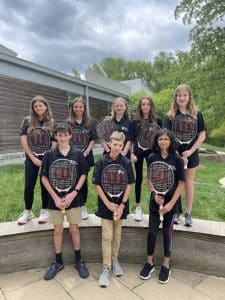Dear Families,
Over the weekend, a friend sent me a list of the 25 most watched TED Talks of all time. It was a fun list to peruse. I’ve watched many and also have a solid list of talks to catch up on now. Despite having missed many, it was with a mix of “Oh wow!” and “Of course!” that I saw the most watched TED Talk of all time: “Do Schools Kill Creativity?” by Sir Ken Robinson. Of the thousands of TED Talks in existence, on topics ranging from artificial intelligence to organizational leadership, from vulnerability to time travel, the single most watched Talk ever is on education, and specifically about the importance of creativity in education. The Talk has over 73 million views on TED’s website.
I’ve seen this TED Talk many times but I rewatched it and I encourage all of you to do the same. It certainly pushed me to think about the granular details of our program here and particularly to consider the educational experiences of our students. Ken Robinson says, “What we do know is, if you’re not prepared to be wrong, you’ll never come up with anything original — if you’re not prepared to be wrong. And by the time they get to be adults, most kids have lost that capacity. They have become frightened of being wrong. And we run our companies like this. We stigmatize mistakes. And we’re now running national education systems where mistakes are the worst thing you can make. And the result is that we are educating people out of their creative capacities.”
As hopefully many of your children shared with you, over the last month the students completed research projects on famous people who learned differently. We displayed their final works at Grandfriends Day. The goal of the project was not to learn how successful individuals weathered their learning difference, but rather how they leveraged it, becoming extraordinary because of their unusual, divergent way of thinking. Two of my favorite biographies, Walter Isaacson’s Steve Jobs and Leonardo DaVinci capture both of these trailblazers’ predilection for failing forward. A walk around our school will reveal the same pattern. Creative genius and comfort with failure seem happy partners.
The Talk, and the recent research of our students, both serve as important reminders for all of us that work with children who struggle in the classroom. First, mistakes should be nurtured as lovingly as successes. And second, achievement should be acknowledged and elevated across a wide range of competencies and endeavors.
Ken Robinson tells the story of famed dancer and choreographer Gillian Lynne. Gillian struggled in traditional school but described what it was like to finally learn the way her mind was asking to be taught: “We walked in this room, and it was full of people like me — people who couldn’t sit still, people who had to move to think.”
It is my absolute hope that The Pilot School feels this way to our students, that we can nurture them toward greatness like the many individuals they’ve learned about this spring. If you have a chance, walk through our halls and check out the work the next time you are on campus!
Warmly,
Alli
